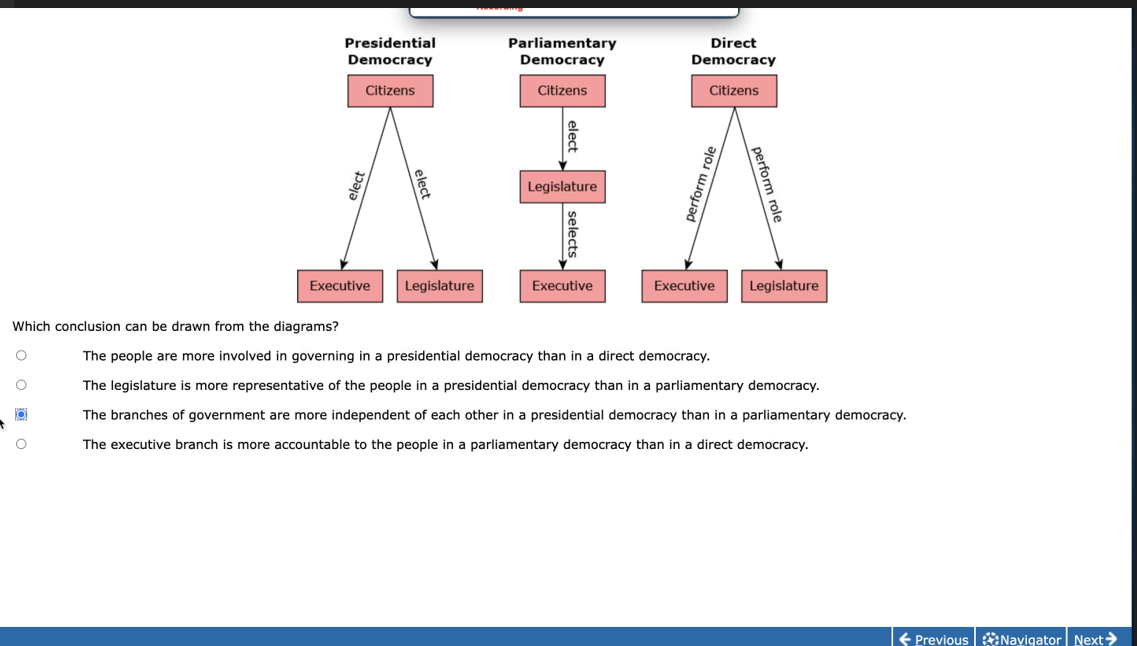Description
GED Test Social Studies
Question 10 of 30
This information is from a 2015 U.S. Energy Information Administration (EIA) report.
Short-Term Energy Outlook
Oil Production
January was the seventh consecutive month in which monthly average North Sea…crude oil prices decreased, reaching $48 per barrel, the lowest since March 2009. The price decline reflects continued growth in U.S. oil production and strong global supply, amid weaker global oil demand growth. This contributed to rising global oil inventories. In January, estimated total commercial oil inventories reached their highest level since August 2010.
Gasoline Prices
Driven largely by falling crude oil prices, U.S. weekly regular gasoline retail prices averaged $2.04 per gallon on January 26, the lowest since April 6, 2009. EIA expects U.S. regular gasoline retail prices, which averaged $3.36 per gallon in 2014, to average $2.33 per gallon in 2015. The average household is now expected to spend about $750 less for gasoline in 2015 compared with last year because of lower prices. The projected regular gasoline retail price increases to an average of $2.73 per gallon in 2016.
Which statement best explains the situation described in the paragraphs?
- Lower crude oil production will cause U.S. gasoline prices to return to 2014 levels by 2016.
- Crude oil production levels have caused U.S. gasoline prices to fall. (Correct Answer)
- Greater crude oil reserves have caused the U.S. government to reduce gasoline prices.
- Crude oil prices in 2014 encouraged U.S. families to buy less gasoline in 2015.
GED Test Social Studies





Reviews
There are no reviews yet.